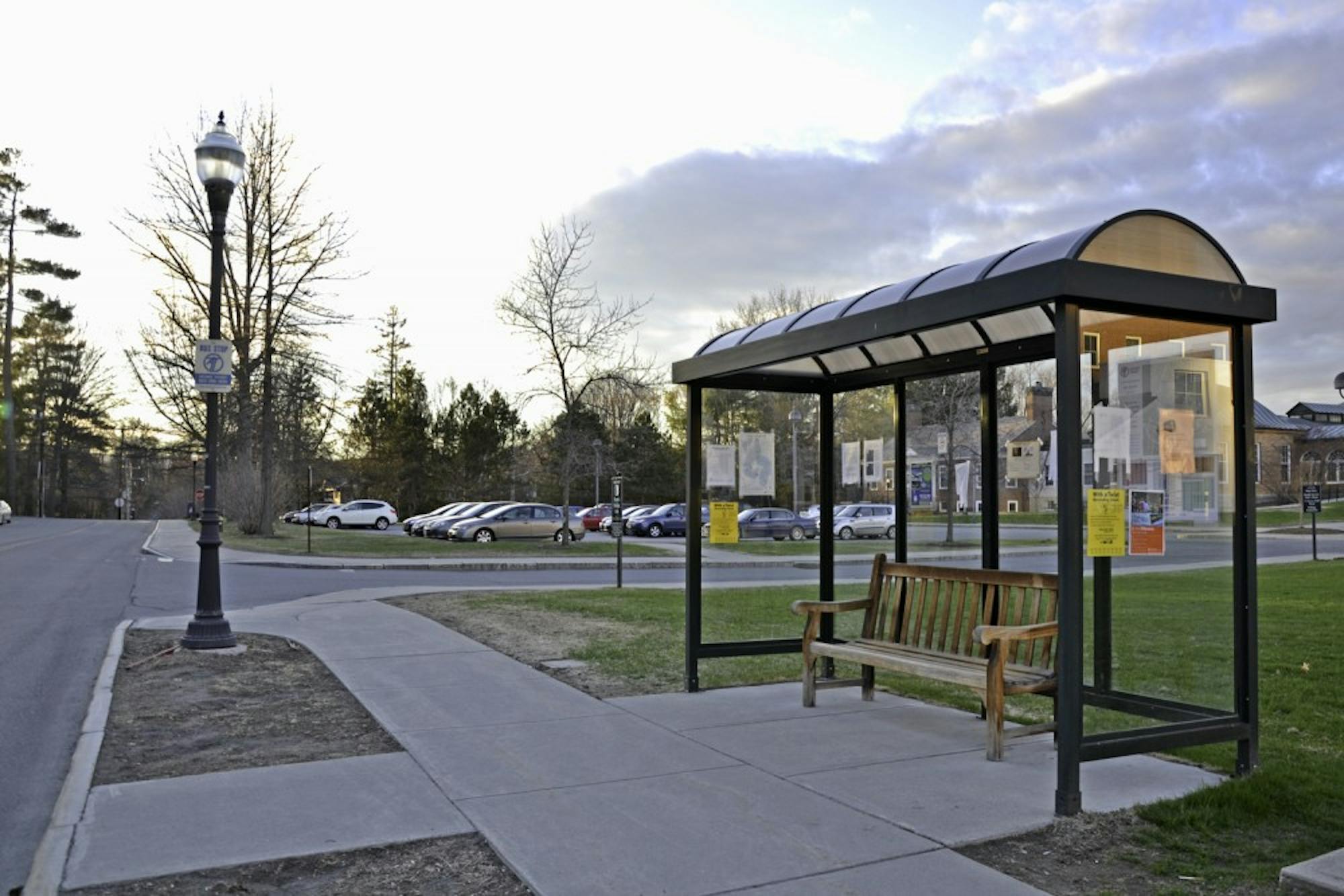In April 2024, Catherine Harnois ’27 logged into her housing portal to find no available on-campus housing for her and her roommate. The duo was placed on a waitlist and given three options: remain on the waitlist, apply to a Living Learning Community or opt-in to an off-campus apartment at the Summit on Juniper complex, located approximately 3.2 miles — or a 15-minute bus ride — from campus in Lebanon, Harnois said.
According to Summit resident Daphne Muhammad ’25, some sophomores were “upset” about their placement in off-campus housing. While sophomores typically live on campus, construction on the Fayerweather Halls — which have traditionally housed first-year students — changed the College’s housing landscape. Freshmen in South House were assigned to Topliff Hall and Mid Massachusetts Hall — previously occupied by sophomores and upperclassmen — while some second-years and upperclassmen were displaced to Summit.
“We waited until the very last moment [on the housing waitlist],” Harnois said. “Then they [sent an email stating] that everyone who doesn’t have a room at this point is going to live in Summit.”
To help students get to and from campus, the College has provided transportation to Summit since 2022, according to transportation services director Patrick O’Neill. The program piloted after O’Neill hired a consultant who connected the College with Premier Coach, a transit service in Northern New England, O’Neill explained. The consultant “assisted” with campus surveys and community member focus groups to determine routes, while Premier Coach provided buses, accredited drivers and mechanics for the Campus Connector service.
O’Neill said he and his team have been monitoring “ridership” and hearing “occasional requests” about expanding service hours. Currently, the Campus Connector travels to and from campus from 5 a.m. to 2:45 a.m. on weekdays and 6 a.m. to 2:45 a.m. on weekends, according to its website.
“In the winter of 2023 … we saw that ridership increased, and we responded to that by increasing the size of the Campus Connector buses so that they would hold more passengers,” O’Neill said. “[The buses] now hold around 50 people standing room.”
Despite the provided transportation, several students said their placement in the Summit apartments — which previously housed primarily graduate students — has introduced challenges to their daily lives. Isabel Bedoya Rose ’27 said she did not elect to live in Summit, but was forced to due to the on-campus housing shortage. Now, she finds waiting for the bus “annoying” during cold or rainy weather. She explained that she usually opts to instead commute to campus with her friend, who has a car. While the bus ride takes 15 to 20 minutes, the route is approximately 10 minutes by car.
Bedoya Rose added that the off-campus location also makes transitioning from activity to activity more difficult. She said she has had to pack changes of clothes to adapt to her various on-campus commitments, such as studying and club tennis.
“I like to dress [up] for class, and then I want to switch to sweats [to study],” Bedoya Rose said. “That’s an inconvenience. I also play for the club tennis team, so getting changed for that is a hassle.”
Dafne Valenciano Coronado ’25, who elected to live in a Summit apartment, said she also brings several changes of clothes from her apartment to campus each day.
“I feel like I’m coming to a vacation or camping because I have so much stuff with me,” Valenciano Coronado said. “Today, I had morning yoga class, so I had to bring all of that, and then normal clothing. I can’t go back home before work or my classes to shower.”
Harnois, who does not have access to a car, said planning her day in advance has been “difficult” — explaining that on-campus living allowed more spontaneity.
“Last year, the key moments were just spontaneous things that me and my friends did,” Harnois said. “Now, because I have to plan to take the bus at a certain time, everything has been more planned for me in my schedule, and I can’t just do things around campus as much.”
While the bus mostly makes 30-minute loops during the day, it runs hourly after 10 p.m., according to the Campus Connector website. Harnois said it can be “difficult” if she is ready to go home past 10 p.m. but has to wait an hour before another bus arrives. The Connector makes 11 stops along its route, according to the System Map.
Muhammad — who elected to live in a Summit apartment — noted that “packed” buses this term can impact student schedules. She explained that when buses arrive near class start times, they can be too full to accommodate all passengers, leaving up to 10 to 15 students unable to board. Muhammad said that she missed the bus once last week for this reason.
According to an email sent from Residential Life to Harnois in August, the College added a third Campus Connector.
Despite transportation challenges, Muhammad expressed appreciation for the distance between campus and her Summit apartment.
“[Living at Summit on Juniper] feels like I went to school, and now I am going home,” Muhammad said. “I like the separation.”
The investment in transportation services on campus has had other benefits, such as support for students on crutches or in wheelchairs, O’Neill said.
“Prior to mobility starting up, the only way for people to get to the A Lot for undergraduate students would be for them to walk,” O’Neill said. “So that was something important for that population … And I would also mention that we supported Advanced Transit’s addition of a new Saturday service, which is something that people on campus have been asking about for years and years, and that’s been a popular addition for students to get places, especially West Lebanon shopping centers.”
The Campus Connector currently runs 21 hours a day.




